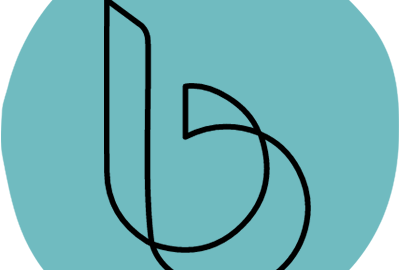Being depressed is not the same as being sad when you lose your job. Both are feasible and manageable.
For many people, leaving a job means losing not only their money and benefits but also their identity.
In April, about 20 million jobs were lost in the United States, primarily as a result of the COVID-19 epidemic. For the first time, many Americans are losing their jobs unexpectedly.
In the United States, where many people’s work and self-worth are interchangeable, losing a job can lead to emotions of grief and loss, as well as developing depressive symptoms.
If you’ve lost your work and are worried or stressed, realize that you’re not alone and that assistance is available.
Job Loss and Unemployment Stress
Depression, on the other hand, is a recognized mental health illness with more than just sorrow as a symptom. It lasts longer than two weeks and frequently requires expert help to recover.
While the stress of losing a job can be overwhelming, there are a number of things you can do to gain control of the situation, keep your spirits up, and rediscover your sense of purpose.
Losing your job, whether you’ve been laid off, downsized, forced to retire early, or seen contract work dry up, is one of life’s most stressful events. Aside from the obvious financial hardships, losing a job may have a significant impact on your attitude, relationships, and general mental and emotional well-being.
Our occupations are frequently more than just a means of subsistence. They have an impact on how we view ourselves and how others see us.
Even if you didn’t enjoy your work, it provided you with a social outlet and gave your life structure, purpose, and meaning. Being laid off unexpectedly might leave you feeling wounded, angry, or sad. You can be doubting your own identity, lamenting all that you’ve lost, or worrying about the future.
It’s probable that you’ll feel sad or depressed after losing your job. If you believe the loss is substantial, you may go through the stages of mourning.
Whether you have one or the other depends on a variety of circumstances, including:
- How essential was the job to you?
- your present network of support
- resources of the heart
- the state of your money and relationships, among other things.
- You have mental health issues that you have to deal with.
Affordable therapy delivered digitally – Try online-therapy
Choose from online-therapy’s vast network of therapists for your therapy needs. Take a quiz, get matched, and start getting support via secure phone or video sessions. Sign Up now and get 20% off.
Statistics
According to a 2014 Gallup study, the longer you remain unemployed in the United States, the more likely you are to report psychiatric problems.
According to the study, one in every five Americans who have been unemployed for a year or longer have had or are receiving treatment for depression.
This is about double the rate of depression among people who had been unemployed for less than five weeks.
People who are jobless lose access to job-related advantages such as time structure, social interaction, and status, according to a 2019 study published in the Journal of Occupational Health Psychology, which correlates to greater sadness.
How does losing a job affect your mental health?
Given a huge body of research linking unemployment to anxiety, sadness, and loss of life satisfaction, among other negative outcomes, the mental health consequences of today’s job losses are expected to be significant.
Does depression make it hard to get a job?
If you suffer from depression, you may find it difficult to do the activities that are required of you as part of your employment. It’s possible that the way you’re feeling is so bad that you don’t want to go to work at all.
How do you know it’s depression?
Depression is a mental health condition that can be diagnosed. If it’s present, it means your symptoms have started to interfere with crucial aspects of your everyday life.
Sadness can manifest itself in ways other than severe depression.
You may also be suffering the following after losing your job:
Grief. Grief is defined as strong sentiments of bereavement caused by a loss. It improves progressively over time.
Languishing. Languishing in a low-mood feeling that doesn’t interfere with regular living but makes you feel awful.
Adjustment disorder is a mental illness that affects people. An adjustment disorder is a strong emotional reaction to a stressful experience that has fewer symptoms and is less severe than clinical depression.
Anxiety is a mental illness. An anxiety disorder is characterized by persistent and intrusive worries, fear, and, in some circumstances, despair.
Affordable therapy delivered digitally – Try online-therapy
Choose from online-therapy’s vast network of therapists for your therapy needs. Take a quiz, get matched, and start getting support via secure phone or video sessions. Sign Up now and get 20% off.
Tips for Coping With Depression After Losing a Job
- Allow yourself to experience your emotions. Allow yourself to feel the full spectrum of emotions that come with losing a job. Losing your job can leave you with a variety of emotions, including concern about how you’ll support yourself and your partner or family financially, fear that you won’t be able to find another job that matches your skill set and abilities in the near future, feelings of embarrassment or shame, and more. Accepting your feelings is a critical first step in bettering your mental health.
- Don’t be too hard on yourself. Try not to be too hard on yourself—recognize that there were other circumstances at work that led to your job loss. It’s normal for someone to wonder if something they said or did contributed to their job loss, but it’s vital to remember that there are numerous factors that might have contributed to your job loss that had nothing to do with you (for example, your employer’s financial status).
- Seeking support. You may not want to go through a job loss alone if it is very unpleasant. A mental health or counseling expert might be a source of support and help if you’re not ready to speak up to your family and friends about your experience. You may also look for local support groups where you can discuss your worries with others who are going through similar situations. It makes a difference to have folks you can relate to.
- Focusing on a daily routine. Routines might help to offer a sense of stability and comfort. They may also assist you in achieving tiny, manageable objectives that will give you a sense of achievement. If you’re looking for a new work, make a strategy and a routine for each day, utilizing a calendar to keep track of certain activities. This may help you cope with the shock of a significant shift in routine.
- Count Your Blessings. Think about what you’re thankful for. Try to think of a few positives that have come out of this tough circumstance, as difficult as it may be right now. For example, maybe you’re finally able to focus on a career change you’ve always wanted to make, or maybe you’re finally able to redefine your priorities and what matters most in your life, or maybe you’re finally able to slow down and think about your future goals and develop a better work-life balance for your next job.
- Use Relaxation Strategies. Try to learn how to relax your body and mind, whether it’s by deep breathing, yoga, meditation, progressive muscle relaxation, repeating a mantra in your brain, envisioning your happy place, concentrating on what’s around you to ground yourself, or other ways. Consider the widths and lengths of a box as a cue to breathe in, pause, breathe out, and pause as you image moving along the lines of a box for deep breathing. As a starting point, use your phone apps to look for free apps that offer guided meditation.
- Focus on What You Can Control. Many aspects of job loss are beyond your control, including getting recruited for your next position. Focus on what you can control right now, such as updating your cover letter and resume, keeping track of positions you’ve applied for and the results, preparing for interviews, creating an interview outfit that makes you feel confident and put-together, getting your references in order, taking online classes to improve your skills, possibly starting a new business venture you’ve always wanted to try out, and anything else.
When to seek help
If you are experiencing any of the following problems, you should get professional assistance:
- Sadness has begun to intrude and interfere with relationships and other parts of life.
- Your attempts to lift your spirits have failed.
- For more than two weeks, you’ve been suffering symptoms.
- You can’t do the things you want to do or see the people you care about because you’re in a bad mood.
- You’re considering self-harm or suicide.
- You’re depressed and uninspired.
- You have chronic physical symptoms such as tiredness, headaches, or body pains.
- You are never alone when you are unhappy or depressed.
Explore options for tailored, online therapy delivered digitally







